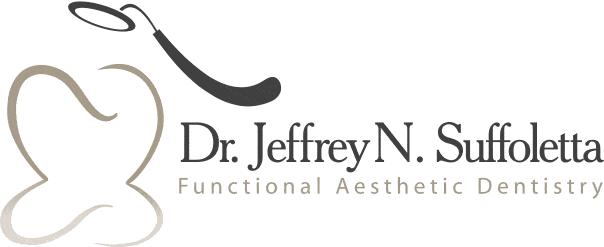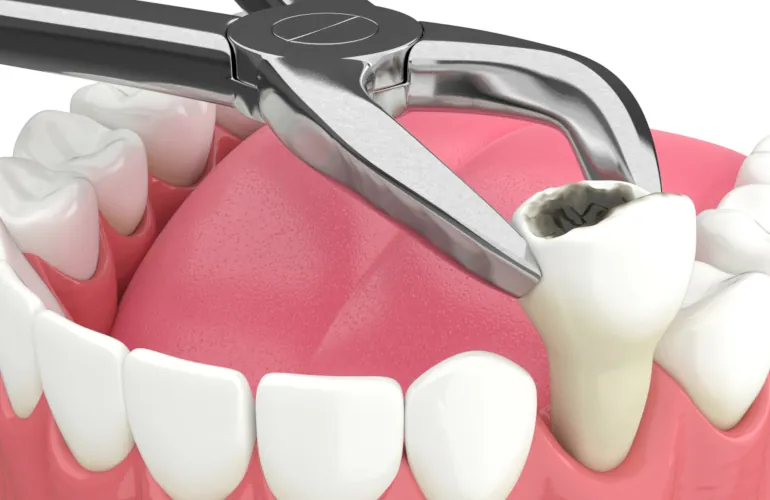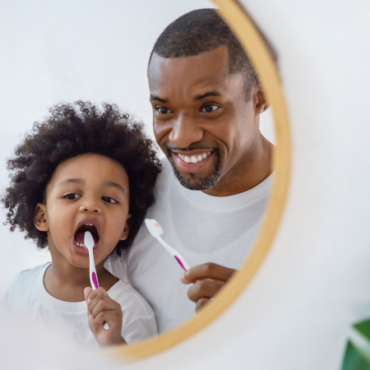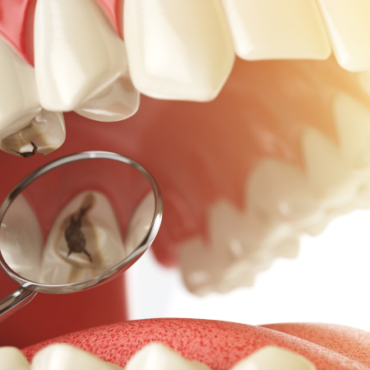Smoking After a Tooth Extraction
Let’s get straight to the meat and bones of the story, smoking after a tooth extraction is not recommended. No matter what your habitual urges are with substance such as drinking and smoking, don’t do it. Let’s inform you further why this is essential to the healing process and why it’s worth for you to wait.
Whether your tooth is being extracted because of an accident, infection, or issues with an impacted wisdom teeth. The local anesthetic process is the same. Your dentist or oral surgeon will numb the affected area prior to the extraction of the tooth. The removal of a tooth is an invasive procedure, that involves removing the entire tooth along with its roots. Once the tooth has successfully been extracted, your dentist or oral surgeon will ensure that there are no fragments of tooth left. Depending on the reason for tooth removal, you may require additional procedures such as bone grafting.
RELATED ARTICLE: How Smoking Affect Your Oral Health
After the tooth has been extracted, the socket will pool with blood. This pooling of blood is vital to the healing process. It will clot the wound and allow it to heal faster and with less pain, in an effort to avoid a dry socket in the extracted area.
Here is a quick overview of a tooth extraction procedure:
- A local anesthetic is used to numb the area
- Your dentist removes the tooth
- A hole is left in the soft tissue
- That hole will pool with blood
- A blood clot will form
- You need to protect the hole and blood clot, allowing it to heal
- It takes 7-10 days for the blood to clot and the hole to fully heal
- A new bone is laid and prepped for a dental implant.
RELATED ARTICLE: Dentures VS Dental Implants
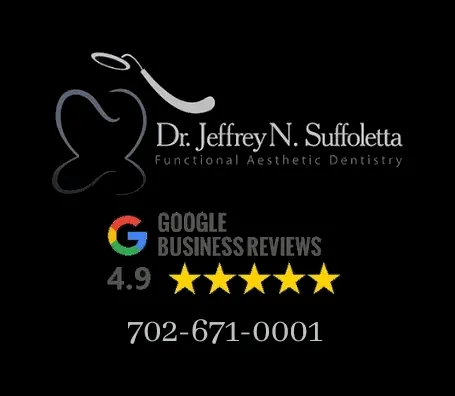
Post-Surgical Guidelines
Your dentist or oral surgeon will provide you with some postoperative instructions. To promote good healing, it is important to follow all the guidelines you are given. Here are some ideas on how to help you care for yourself during your recovery:
- Take all prescribed medication
- Place ice near the site to reduce any swelling
- Do not use straws for 24 hours
- Be careful when brushing your teeth by not touching the surgical site
- No smoking after extracting a tooth
Is Smoking After Extracting a Tooth Harmful?
In short, you cannot smoke after tooth extraction, there is no safe way to smoke after an extraction. Smoking after bone grafting is also not recommended, as the new bone material that’s inserted needs time to solidify and adhere to the cavity.
It is best to not smoke for the first 72 hours at a minimum, after such an invasive procedure. However, you should avoid smoking for as long as possible to let the site fully heal.
At least 7 days of non-smoking and healthy organic foods is recommended. This in turn, helps deliver the proper nutrients to the body and the area of concern at a time it needs it most.
Smoking can have a direct negative effect on the healing process after an invasive tooth extraction. It can even slow down healing by pushing you back to the beginning of the healing cycle.
“But exactly how does smoking delay healing?”
Let’s take a look at the effects smoking has on wounds:
- Sucking action – Whether you’re a cigarette or a cannabis smoker, the blood clot working to heal your wound could become dislodged. This is rather common for many however. As the blood clot is essential in helping the site to heal, this can lead to a dry socket or an infection.
- Smoke – Both cigarettes and cannabis smoking carry materials, whether natural or manmade, that diminishes the cavity’s ability to heal faster. In one case, the smoke will slow down the healing process. Additionally, a dry socket can also develop as the pooled blood dries up quicker than it should. This could lead to more personal suffering from inflammation, you could start bleeding and this could push the healing process back to stage 1.
- The decrease in Oxygen – A well balanced dose of oxygen is always needed for the body to heal properly. The decrease in oxygen and nutrients can prevent the blood clot from forming. In many different health sectors, high levels of oxygen is essential for the body during its regenerative process.
- Heat – The heat from the smoke can cause complications with the socket closing. In most tooth extraction cases, the rule of thumb is to avoid heat on the exposed areas. Whether the area is an impacted extracted wisdom tooth or any other teeth, make an effort to change the temperature of your usual drinks.
That last mention on our list above could be modified as easily as changing your morning hot coffee to an iced latte. You could brush your teeth with cooler water temperature, post extraction. You can also choose to have a cold smoothie for breakfast and a Tuna Ahi bowl for lunch. Simple changes can make a drastic difference in the way your body recovers.
RELATED ARTICLE: The History of Aesthetic Dentistry
What Is Dry Socket?
Developing a dry socket can be one of the biggest risks of smoking, during healing and after tooth extraction. Here are some symptoms of dry socket to look out for:
- You may find it difficult opening and closing your mouth
- May suffer from severe pain and discomfort
- Increase risk of infections
- You may develop an abscess
- The healing process has to start again from day 1, starting with the forming of the blood clot

Can I Drink Alcohol While Healing?
To avoid any complications and delays in healing, you should avoid drinking alcoholic beverages for at least 24 hours. However, we suggest that you wait for as long as possible to help the surgical site heal as quickly as possible. By avoiding alcohol, you will reduce your chances of dry socket and delayed healing.
How Do I Help My Mouth Heal?
Physical activity should be avoided for the first 24 hours following the procedure. You should avoid physical activity because you could cause yourself oral pain and discomfort, as well as dislodging the blood clot. It is important to stay away from alcohol and hot beverages until you have healed, to ensure the blood clot is protected.
It will also be wise to avoid hard and tough foods. While the site is healing, it is important to carry on with your daily teeth cleaning routine. However, you should avoid contact with the extraction site.
When Can I Resume Smoking After a Tooth Extraction?
Once you have fully healed, you can begin smoking once again. However, it is best to wait around 3-10 days to resume smoking after bone grafting or tooth extraction. You may even consider thinking about this as an opportunity to give up smoking for good.
When it comes to drinking alcoholic drinks, you can start from 24 hours after the procedure. However, your dentist or oral surgeon may advise you to wait a little longer. This is to give you the best chance to heal quickly.
To help get you through the healing process, you may want to consider buying some nicotine patches or other replacement products. Who knows, you may even decide to give up for the good of your oral and overall health!
If you follow all the above guidelines, you are sure to have a successful and complication-free healing process. After the procedure, if you are concerned about any symptoms you have, you should call your dentist as soon as possible.
